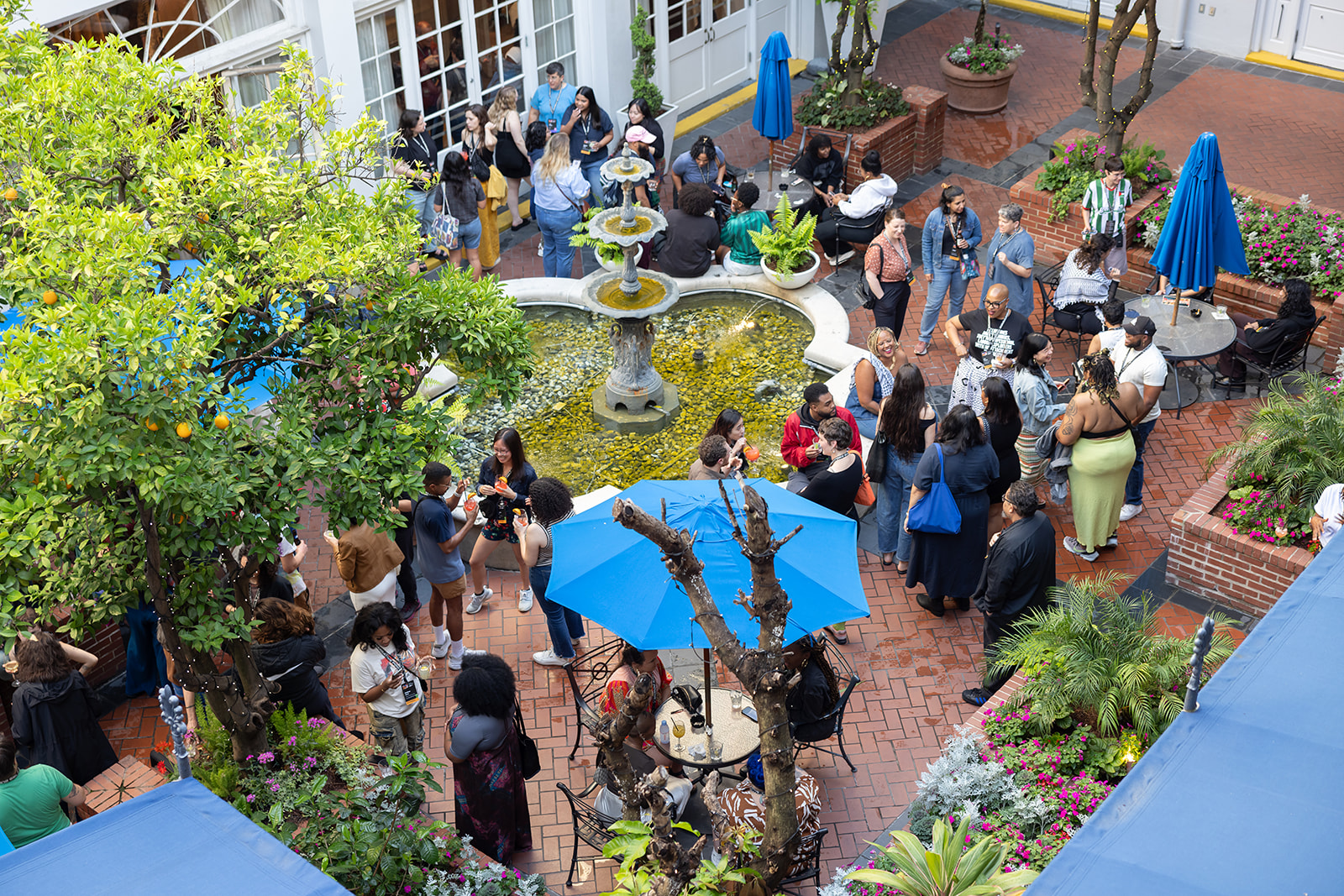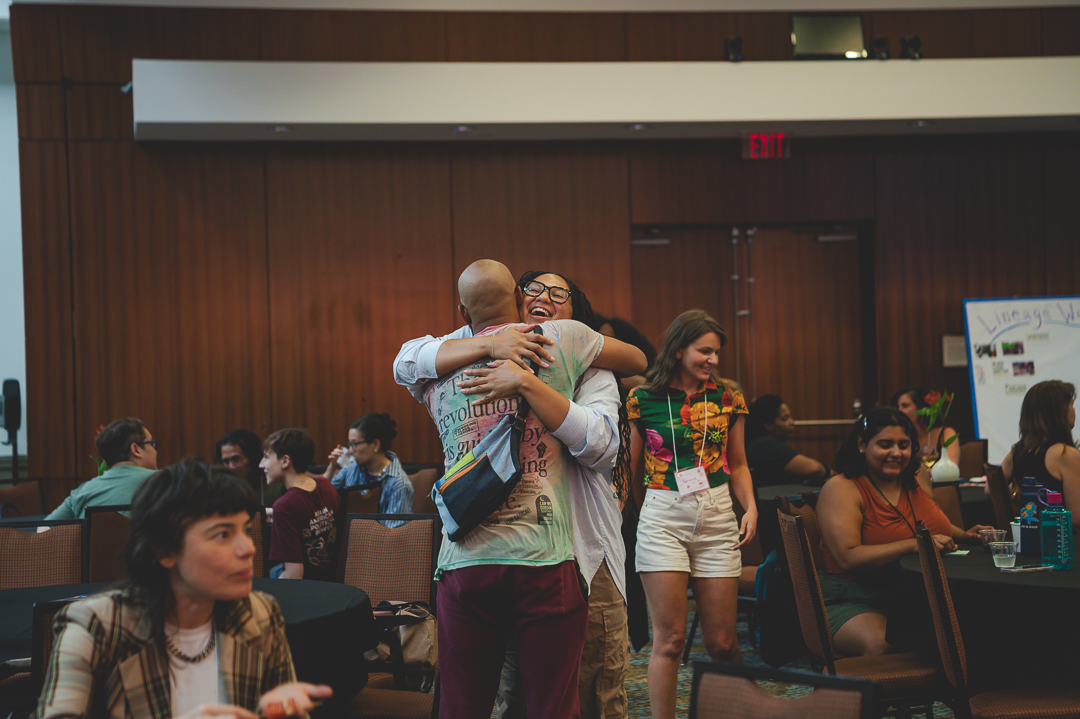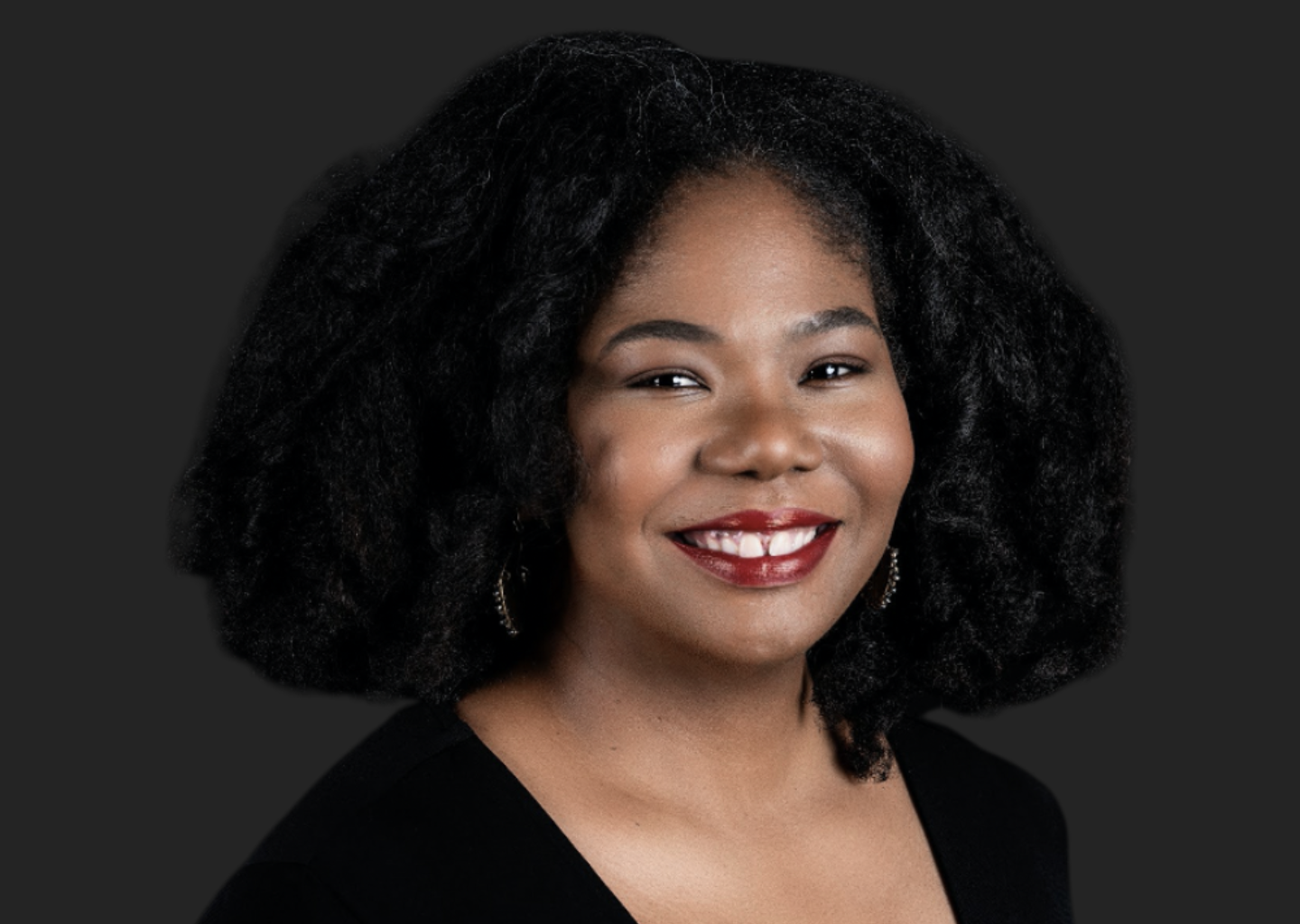We are taking advantage of the Executive Director transition to reflect on what ReFrame has accomplished and learned about building an organization from the ground up. This first reflection is the origin story of ReFrame, placing it into a movement context and challenging the archetypal solo brilliant founder. You can read the first blog post about the transition here.
Last fall I sat in the offices of LUCHA in Phoenix, Arizona. Abril Gallardo, Communications Director at LUCHA - who happens to be ReFrame Alum and an Advisory Committee member - shared lessons from the organization’s dynamic work across the state. We were at the mid-point convening for ReFrame’s Senior Cohort. At the same time, some ReFrame staff were preparing for a Narrative Power 101 training with over 800 people registered from across the country and globe while other members of our team were resting after pulling off our first Narrative Power Summit we co-produced with RadComms. The summit brought together over 250 people for days of peer learning and relationship building. Still yet, other members of our team were working on a narrative power network analysis that would inform a power building strategy held by our close partners.
I had an overwhelming sense of ease. “We did it,” I thought.
Before there was ReFrame
By the time Jen Soriano and I started the ReFrame Mentorship in 2015, we’d spent years in conversations with an informal cohort of strategists in racial justice organizations who were actively engaging big questions about culture and narrative change and strategic communications in their work. We found each other at places like the Progressive Communicators Network annual gathering and the U.S. Social Forum connecting across rooms, sharing insights from our work, and grabbing coffee, drinks, and phone numbers. We supported each other 1:1 and through networks our organizations were a part of like Right to the City.
These relationships - built on both personal trust AND principled political alignment - led to all sorts of collaboration - like Echoing Justice. They also became the infrastructure that we leveraged when movements needed and called for narrative and comms support - from Alto Arizona to the Ferguson Uprising.
Over time this cohort identified an underlying challenge to building the narrative power we needed to win hearts and minds at scale: we needed more strategists grounded in power building organizing with an orientation to narrative; we needed resilient infrastructure to support these networked strategists; and we needed spaces for narrative strategy alignment.
Jen and I set out to solve these problems and we were supported by this broader cohort to do so. Even the seed funding for the mentorship came through that informal cohort. Laine Romero-Alston, a long-time fellow traveler, shared the vision. She leveraged her position in philanthropy to support a whole variety of projects and experiments, including ReFrame. The mentorship was a step towards formalizing and growing what had been an informal and stretched narrative infrastructure built on an aligned vision.
Staying the course in times of uprising
Even with the support of our people and aligned vision, Jen and I had a secret struggle when we started the mentorship.
We knew the path to building narrative powerful movements relies on people first with a commitment to their development and their activation. It’s the organizers in us. We knew that it wasn’t just that we needed more strategists, we knew there were actually people who were eager and hungry to learn more. We also knew that the work of developing junior strategists is heart work - the transformation in leadership can be profoundly hopeful and inspiring.
In addition, the work of building infrastructure could take a long time. The moment we were in required immediate action. It was in the early days of the Movement for Black Lives, on the eve of the #MeToo movement, and less than a year shy of Trumpisms rising tide. We were called to action in the fights that would define an era of politics and culture. A call we had been answering for years.
Our elders - veterans of the Civil Rights Movement, anti-colonial movements in home countries, and Queer Liberation movements - taught us: without infrastructure that maintains narrative advances enshrined in policy, law, behavior, and scaled stories, movements crash into powerful opposition who will bludgeon us, scatter us, tire us out, and advance their own narrative strategies.
We moved into long-term work, keeping our eyes on the ten and fifteen year horizon while doing what we could to support the day-to-day movement moments.
It starts..
Our first year (incubated at the Center for Story-based Strategy), we built the plane as we flew. The amazing class of mentees extended trust and excitement, organizers from organizations like Kentuckians for the Commonwealth, Asian Pacific Environmental Network, and Massachusetts Jobs With Justice. Founding mentors - Jung Hee Choi and Mervyn Marcano, brought a tremendous spirit of collaboration and dedication.
The first year ended with high fives, gratitude, empty pockets and questions. We asked the mentees and mentors what to do next. The resounding answer was - keep going.
Kim Freeman Brown joined in the second year as a mentor and became a critical part of the leadership team. Alejandro Cantagallo joined as an event planner with expertise in prison abolition organizing and a deep practice of care in logistics. The mentor team grew over the years to include: Naomi Ishisaka, Shanelle Matthews, B Loewe, Chelsea Fuller, Natalia Jaramillo, and hermelinda cortés. The mentors found as much connection, meaning, and alignment through the program as the mentees.
It grows…
After the third year Kim, Jen, and I came together in Seattle to plan the next mentorship. Two days later we’d decided to start an organization that could hold the mentorship, but could also expand to bring strategy alignment and narrative development to partners working in coalition with one another across geography and issue, and experiment with narrative research and action.
We brought the historic SPIN academy into our new organization with the gracious support of the team who had been holding the project - Holly Minch, Claudette Silver, and Amanda Cooper. Hermelinda joined the staff and spent her first days at an international narrative power convening in England, followed quickly by a partner meeting in Florida, and a few weeks later she was running a Texas based ReFrame Academy.
In no time we launched a 13-month Next Gen Fellowship with Power California. We ran deep experiments in narrative research, led by hermelinda, that became the foundation of our many narrative research and action projects.
By 2020, Covid hit and racial justice uprisings rocked the country. We trained 5,000 people in one month in collaboration with Movement for Black Lives, we provided regular narrative weather reports to movement leaders, and we ran a daily narrative war room in Florida with a state-wide table of organizing and civic engagement organizations. We took the week-long academy and made it Zoom-proof, expanding the numbers of people we could train exponentially.
Each year since, we’ve innovated our training model, thrown convenings for narrative power builders, and produced behind the scenes narrative landscape and network maps for partners in motion. We’ve also produced movement-wide narrative predictions and trained hundreds of people across philanthropy in narrative power building in order to crack doors open and push funding to organizing and narrative power work grounded in organizing.
We did all of this while growing a staff team that is majority people of color, majority queer, majority women, and led by working class people and values.
I was there for all of it, and as I recall it and list it I am amazed at what we have done.
The long term pay off
In the first three years of the mentorship program people would ask us - “Will mentees get more press hits? Place more ads? Tell more stories? Etc Etc”. Jen and I would say, “Sure but that’s not the point, that’s not the measure of success. In five years we will see graduates from this program leading scaled narrative fights across issues and geography. They will be critical leaders in a scaled narrative empower ecosystem. And they will be in relation to each other.” This response was grounded in the work of Echoing Justice (see page 24) which brought a movement building and power building approach to metrics in order to interrupt the trend of vanity metrics.
In 2020 ReFrame saw alumni of the mentorship program lead scaled narrative battles across the country that were decisive in their states and set the long term narrative terrain. Many of them were directly working with narrative research everyday to take advantage of arising narrative openings.
Now three years later we are finishing up the first Senior Narrative Cohort - a nine month program for senior level narrative strategists already reaching audiences in the tens-of-thousands in relation to power building organizing. These strategists are engaging with dynamic narrative research and applying it to their work, building powerful peer relationships, and scoping future collaborations. ReFrame, putting our money where our mouth is when it comes to resourcing narrative strategy tied to organizing, moved over half--a-million dollars in stipends to the class of ten strategists to support narrative projects in relation to power building organizing.
We see ReFrame as an important part of the overall ecosystem. Given this it makes sense that several of our staff leading narrative research, supporting on training, and shepherding the organization are also alumni of the mentorship program, including incoming Executive Director hermelinda cortés.
These numbers alone may seem small, but that is a matter of perspective. If you look at development over time it is clear - ten years ago this network of narrative strategists did not exist. If we shift perspective away from just the mentorship program we see a large network of leaders moving in the same direction. We see this in the work we did supporting Women’s March’s Digital Defenders in inoculating their communities against right-wing ideology to the thousands of people who now share core concepts and definitions of narrative power building learned in our trainings, to the thousands of organizers and leaders using our annual narrative predictions as a critical component in their strategies.
It’s not over…
From the beginning ReFrame has been a shared effort born from necessity, creativity, excitement, and deep nerdiness. The work of the organization is far from over.
We are not simply trying to change narrative in a neutral environment, we are building narrative power in an environment where an organized opposition has invested 80 years and countless resources in shaping hearts and minds across society. Everyday we deal with the fallout from this oppositional investment in the form of violence, a hardened inequality, an emboldened and organized white-suprmecist and misogynist right-wing.
ReFrame has done the most with what we have. The ecosystem is growing through our direct effort and through the collaborative efforts of so many we are in network with. And there is plenty yet to be done.
I am beyond excited for hermelinda cortés to bring her talents, experience, and drive to the role of Executive Director. I am also excited for her move with her expanded cohort of strategists, networks, and lineage to level up the ecosystem.







































.jpeg)


.png)

%20(1).png)





























